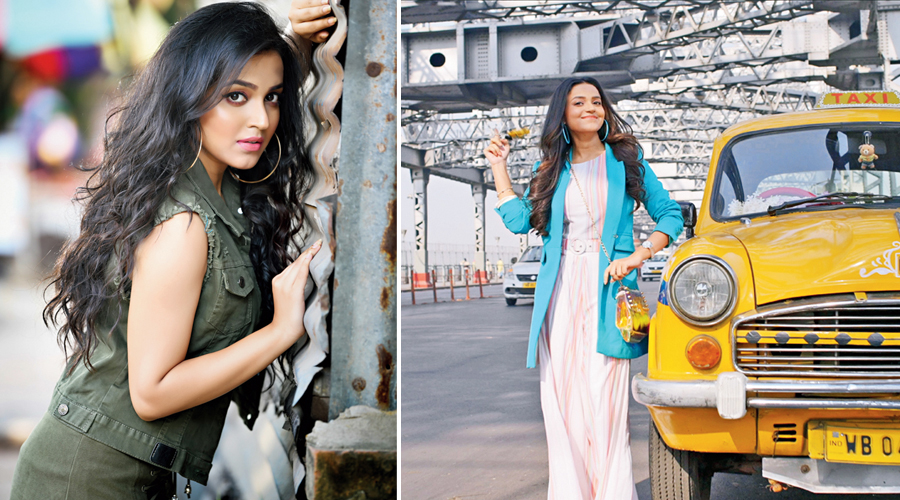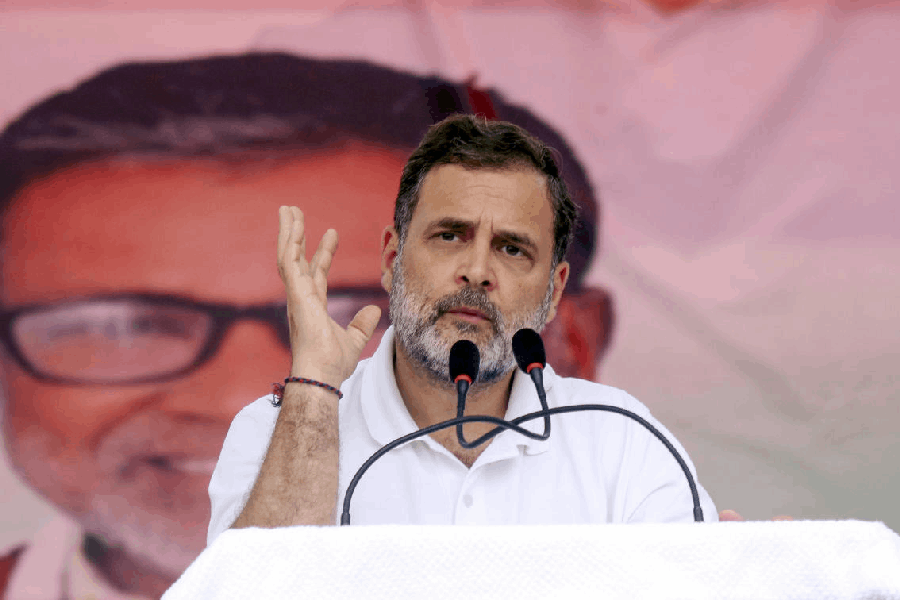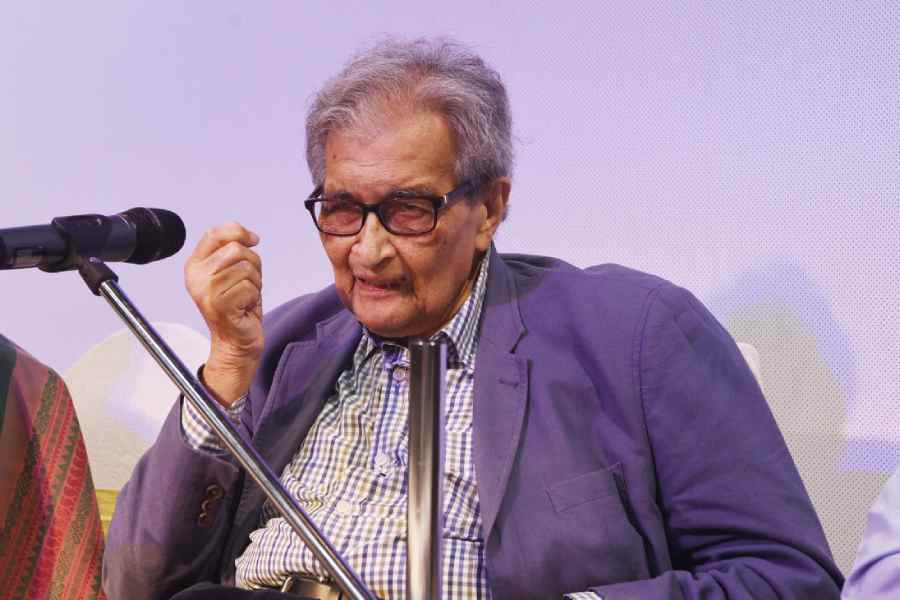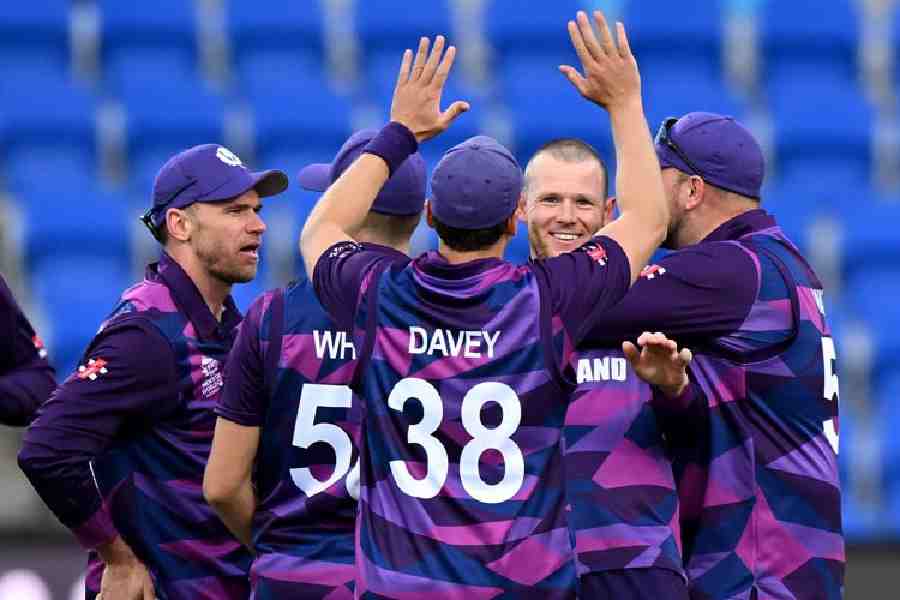Staying in a hostel from Class V to 12 and studying psychology honours in college opened up her perspective on life. Annwesha Hazra was brought up on strong values and convictions. “My father is an honest person and everyone including my friends look up to him. He has always taught me to be happy and content with what I have and cherish the small joys of life, to be helpful, to work hard with the head held high in one’s profession and never compromise on one’s ethics and ideals. Whereas my character Urmi in Amader Ei Poth Jodi Na Shesh Hoy has always lacked a fatherly presence in her life. She is very different from me in many ways,” says Annwesha on the character she plays in the Zee Bangla serial Amader Ei Poth Jodi Na Shesh Hoy.
Did you always have the acting bug?
Since my childhood, I was keenly interested in acting. Our family is into business, and we have a cinema hall too. My Dadu had founded a cinema hall among other verticals. So when he established the cinema hall, he had also produced the movie Ami Sirajer Begum. I have seen old photos with Biswajit Chatterjee and Sandhya Roy. My passion for acting only grew when I went to watch films in cinema halls. You know, that moment when the hero and heroine make their entry in the film and the hall erupts into applause and hoots, that was a dream moment for me.
How do you think the portrayal of female leads in Bengali TV serials has changed?
In our profession, we use the word ‘actor’, which I like a lot because it is gender-neutral. And I have just stepped into the industry. So I don’t think I can answer the question well. But good stories are the way ahead for mega serials to evolve from here on. Good work only begets good work. And if you see, mega serials mostly have women-centric stories, be it a woman driving a taxi or aspiring to be a pilot and so on. Every mega serial and time slot has its audience base. I hope to work on good projects with good, engaging, and different storylines and be loved by my viewers. If it is a story of even a female warrior like the warrior queen Rani Lakshmibai, the TV series Jhansi Ki Rani that aired on Zee TV, we all enjoy watching the love story in it too. But what matters most is how strong the story is. The overall story has to stand out. I am not a fan of mush and prefer romance to be more realistic because love is subjective.
How did you prepare for the role? Did you learn to drive a taxi?
I am nowhere as naive as Urmi (laughs). I try to differentiate the characters that I have played to date. She has learned a little something of everything, and I relate to her in a way because my acting journey to date has been a learning curve, with each project being a classroom learning of acting. Each mega serial is nothing but stepping stones in my journey to learn the art of acting, and I feel like I am studying on scholarship and gaining a lot in the process.
The direction and the script helped us in the portrayal. It’s teamwork at the end of the day, from the make-up artist, the hair artist, the costume designer to the direction and the acting. Be it Urmi, Roshni, Chuni — every character I have played to date is different because of the world and the characters connected to them. I take both appreciation and criticism with a grain of salt. I remember the compliments and keep the criticism in mind and move ahead. Our profession is very uncertain. Be it the good or the bad, they are both short-lived. It’s been only three and a half years since I stepped into acting. It’s a long way to go from here.
Your first serial was Kaajollata...
Yes, and then during the shooting for Briddhashram, I learned to drive from a training centre at 5.30 in the morning. But learning how to drive with a trained tutor beside you with all the safety consoles in place is very different from driving a taxi on the busy roads of Calcutta in the peak hours of the morning. The taxi has an altogether different console system. Hence, driving a taxi on Howrah Bridge at 7am for the shooting schedule, and on packed streets, it was nerve-wracking! Meanwhile, through the walkie-talkie beside me, my director was telling me to smile and all I wanted to do at that point was to run away for my life (laughs). I also drove in front of the Victoria Memorial.
Tell us about the crux of the story and your character Urmi...
Every story is different. Amader Ei Poth Jodi Na Shesh Hoy is special too in its way. Urmi was raised by her kaka and kaki in a joint family. She lost her father when she was a child. And ever since he passed away, her mother became strict towards her. She has her Dadu too but has been deprived of fatherly care and companionship all her life. And, her Mamoni and kaka aim to usurp her of the property that she would inherit from her Dadu, by seeing to it that she is made out to be an unsuitable successor for the property inheritance.
Urmi, however, is not the quintessential spoilt brat of a rich family. She is immature, emotional and gullible, one who believes every word that her Mamoni and kaka say to her and obeys them unthinkingly.
On the other hand, Satyaki, the male protagonist, too hails from a joint family comprising ma, baba, thamma, kaku, kakima, and their children. But unlike Urmi, he has his feet on the ground, is realistic, punctual, and matured.
Circumstances bring Satyaki and Urmi together.
Yes. When they meet for the first time, Satyaki saves her from goons. And when she sees him driving a taxi, she realises that driving is an art and is adamant about learning it from him since she has only learned little something about everything to date. Through her bonding with Satyaki, it is for the first time that Urmi learns life’s lessons organically. When Urmi’s Dadu meets Satyaki for the first time, he realises that this is the man who will help her grow out of her childishness into maturity.
The story is relatable too because it also depicts the fine line between manipulation and motivation. There are people like Urmi’s Mamoni and kaka all around us. These human traits even spring from excessive possessiveness and protectiveness. So, we should have our convictions and not act impulsively, among other things.
And there’s a sweet love story at the core too.
Any relationship blooms through friendship, be that with our parents or friends or lovers. As of now, Urmi and Satyaki are still just friends. But yes, Urmi and Satyaki will eventually realise that they are in love with each other, which is already playing out in their subconscious mind. There are enough instances to hint at that. She forgets her bracelet at one point, which he keeps carefully. Of course, there will be plot complications brought in by her Mamoni. She will try to create misunderstandings between them, so there will be conflicts and clashes, but they will rise through it all to realise their love for each other as the story further unfolds.
Are you interested to venture into web series and films too?
Yes! I am doing TV now. But I came into the TV industry with the goal for the silver screen. But everything happens in due time. If a good project comes my way, why not? Doing cinema is my eventual goal, and I am also keen on doing web series. I enjoy watching web series on Hoichoi. Also Hindi web series such as Family Man, Panchayat, Made in Heaven. They are unique stories.
What were the challenges of shooting during the pandemic? What keeps you going in these times?
The situation is grave. The fear is real. But we had tried to keep out all the negativity and work consciously, keeping a positive atmosphere with fun and laughter. But, the moment we had reached the sets, we went through temperature checks and had kept the mask on until the shot is on. We would frequently sanitise ourselves too. We used to keep aside all unpleasant thoughts and get back to work with a fresh mind.
And how has your experience been with your co-actors?
Writwikda is so good and very cooperative. This is my first work with him. Among the senior actors on the set, I have worked with some of them. And I am working for the first time with some of them. There are very few people who can make a career out of their passion and I feel fortunate to be among them.










